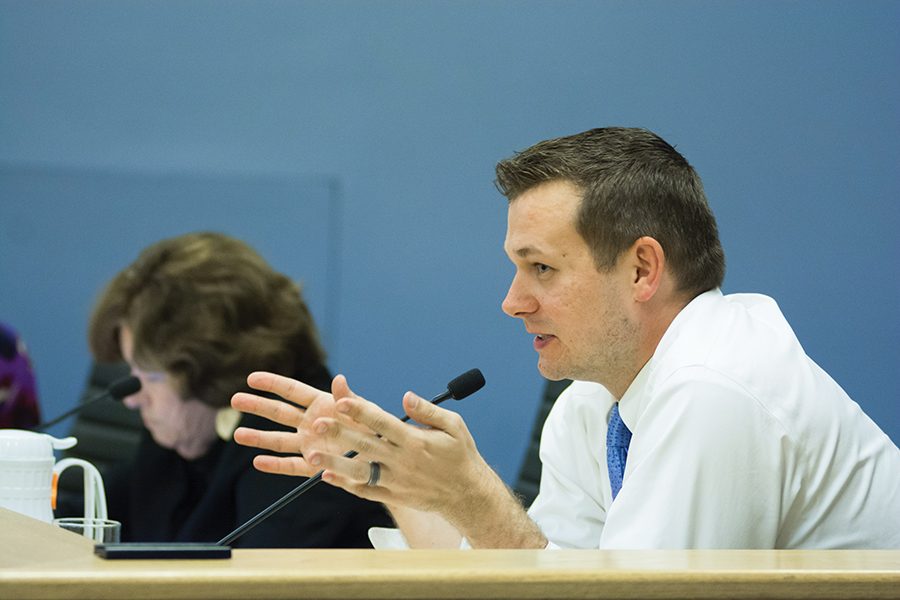Council members talk perceptions of Evanston police
Brian Miller proposed an amendment that would not require bikers to use lights at night. He removed his amendment after receiving backlash from the community.
October 5, 2016
Aldermen and community members discussed on Tuesday the need for a solution to the perception among Evanston residents, particularly people of color, that city police act aggressively.
In effect, Ald. Brian Miller (9th) said officers must be trained to use de-escalation practices.
Miller said at the Human Services committee meeting that he has heard several residents complain about police escalating encounters, making them feel uncomfortable around officers.
Miller referenced the report delivered by diversity expert Gilo Kwesi Logan to the committee this September. Logan said communities of color believe black residents are policed more aggressively and more frequently than other groups. Miller, a candidate for Evanston mayor, said the perception that some police officers are biased needs to be addressed by the Evanston Police Department.
“Whether it’s true or not… that is the perception towards our officers,” Miller said. “We, as a council, have to make a policy statement of how we want our officers to treat our residents. And that’s why I want to continue this conversation.”
Evanston resident Julie Koehler said she experienced a case of police escalation when she left her three children within eyesight as she went to an Evanston Starbucks for a few minutes. She said she witnessed a police officer walk up to her car, distress her children and accuse her of abandoning them.
As a public defender, Koehler said she knew she wasn’t breaking the law and was shocked when the police officer reported her to the Department of Children & Family Services.
“This situation is a perfect example of something that got escalated way out of control because the officer assumed the worst in me,” Koehler said. “I shouldn’t have to be trained on how to speak to that police officer. That police officer should be trained on how to speak to me.”
Deputy police chief Aretha Barnes said police officers do receive training about appropriate use of force and how to communicate effectively with residents, and officers will continue to be trained.
In a presentation delivered to council members, Barnes said officers have received trainings from the Department of Justice, and teaching de-escalation tactics is a work in progress.
“At the police academy and during their department training programs, newer officers receive training on dealing with human and individual rights and how to talk to people respectfully during low- and high-stress calls,” Barnes said.
Earlier in the meeting, Miller wanted to amend city code to allow people to bike without lights at night. Miller said he supported the use of bike lights at night, but he withdrew the ordinance after backlash against the amendment.
Miller said the law was tied to police escalation because the absence of a bike light could be used as an excuse to pull someone over.
“My intention was never ever to remove the requirement to have lights at night on a bike,” Miller said. “I want to have a continuous discussion of how our police are using minor ordinances and how they’re escalating — potentially — situations that don’t need to be escalated.”
Email: [email protected]
Twitter: @ericasnoww


